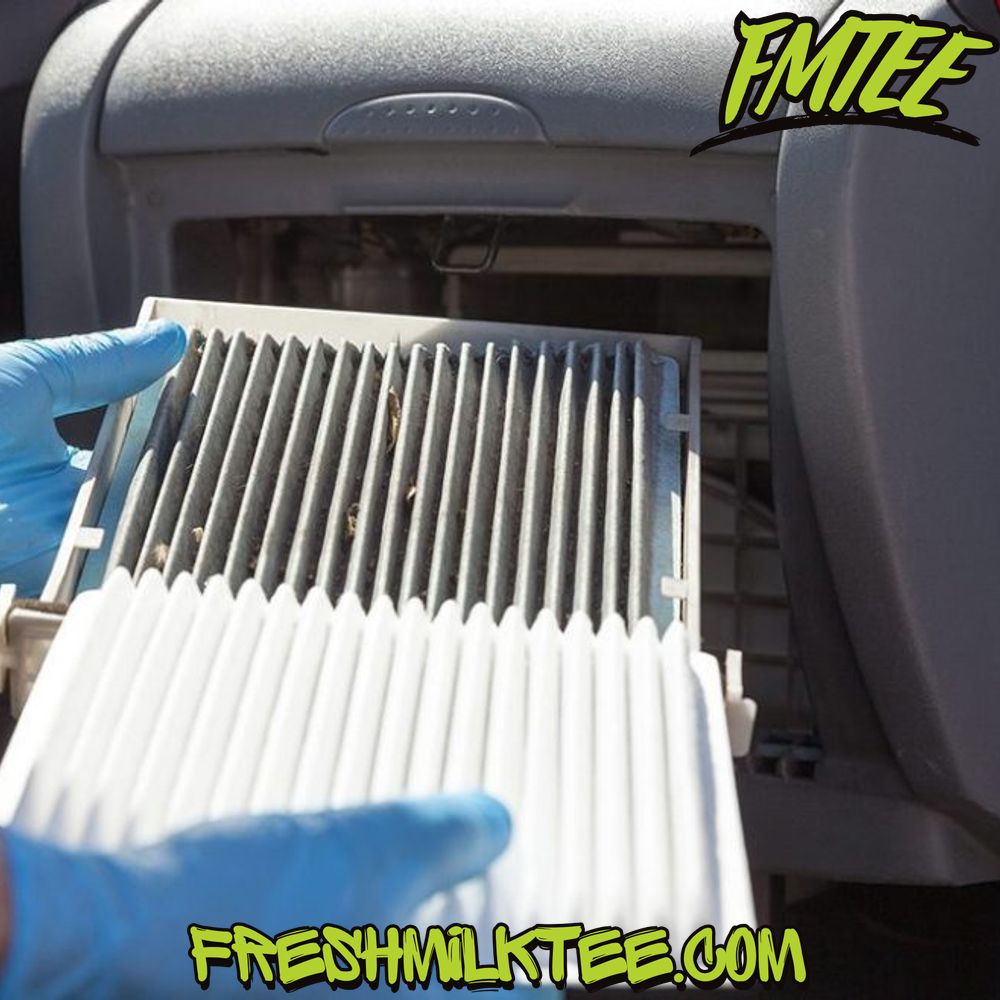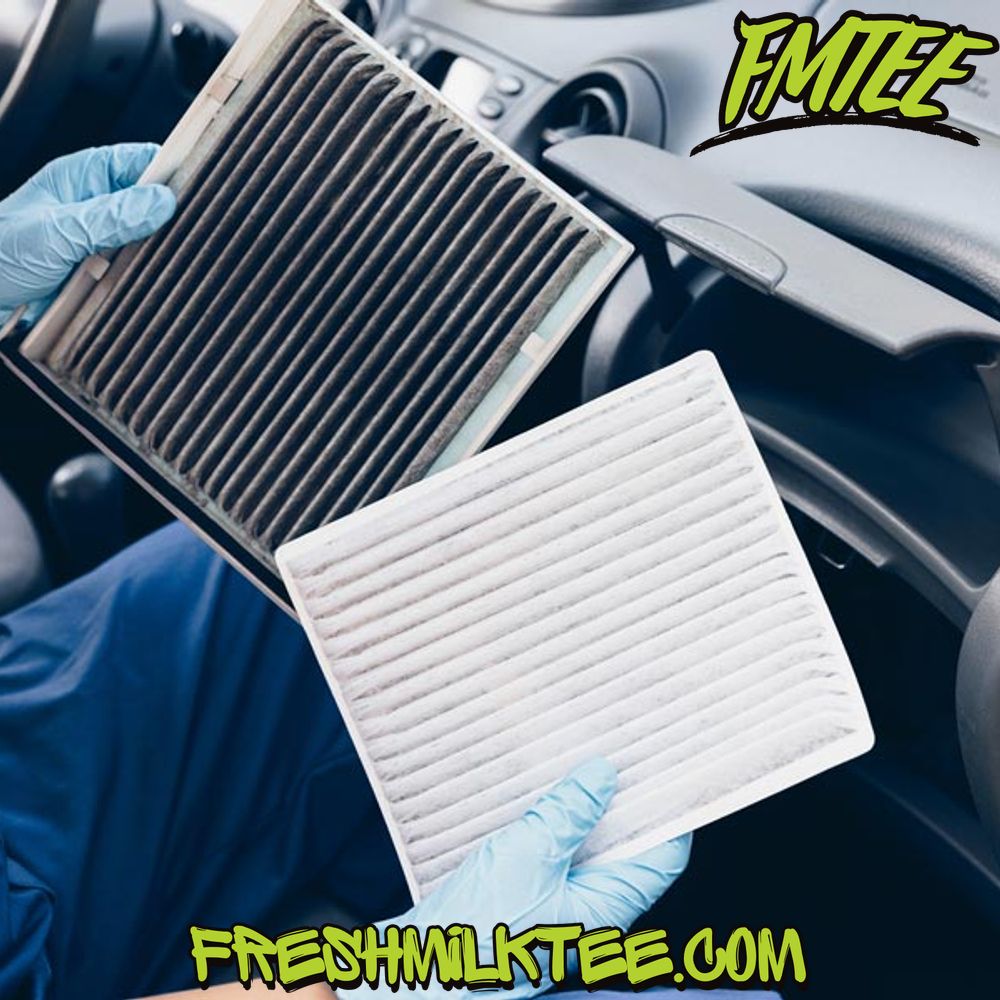Seo Blogs
How Often to Change Cabin Air Filter
How Often to Change Cabin Air Filter: A Comprehensive Guide
Maintaining your vehicle’s cabin air filter is crucial for keeping the air inside your car fresh and clean. The cabin air filter helps remove dust, pollen, and pollutants from the air, ensuring a healthier driving environment. Over time, these filters become clogged and less efficient, which can affect your vehicle’s HVAC system and your overall comfort. So, how often should you change your cabin air filter?
This guide covers everything you need to know about the frequency of cabin air filter replacements, signs to look out for, and the benefits of maintaining clean cabin air filters. Whether you drive a Honda CR-V, Honda Accord, Honda Civic, Honda Pilot, or any other vehicle, we’ll show you how to extend the lifespan of your cabin air filter and ensure your car’s air quality remains top-notch.
What Is a Cabin Air Filter?
Overview of the Cabin Air Filter
A cabin air filter is a critical component in your vehicle’s HVAC (heating, ventilation, and air conditioning) system. Its main job is to filter out pollutants, dust, pollen, and debris from the air that enters the cabin through the ventilation system. Cabin air filters are especially important for people who suffer from allergies or respiratory issues, as they can trap allergens and improve the overall air quality inside the vehicle.
Why the Cabin Air Filter Is Important for Your Vehicle
Maintaining a clean cabin air filter ensures that your car’s HVAC system operates efficiently. A clogged cabin filter not only diminishes air quality but also forces your HVAC system to work harder, potentially leading to increased wear and tear on components like your air conditioning system. This can result in reduced air circulation, foul odors, and even higher fuel consumption. Regular replacement of the cabin air filter can help avoid these issues, while also providing a more comfortable and healthier driving experience.
How Often Should You Change Your Cabin Air Filter?
Understanding How Often to Change Cabin Air Filter
The general recommendation for how often to change your cabin air filter varies depending on driving conditions and the vehicle manufacturer’s guidelines. On average, most cabin air filters should be replaced every 12,000 to 15,000 miles or at least once a year. For example, Honda CR-V, Honda Accord, and Honda Civic owners might find that their vehicle’s manual suggests replacing the filter every 15,000 miles, but this can vary depending on driving conditions.
When to Replace Your Cabin Air Filter: Key Indicators
While the manufacturer’s guidelines are a good starting point, there are several signs that indicate it’s time to replace your cabin air filter:
- Reduced airflow through the air vents, even when the fan is at full blast.
- Unpleasant odors, such as mustiness, coming from the air conditioning system.
- Increased dust or debris inside the vehicle.
- A whistling sound coming from the air vents when the fan is on.
If you notice any of these signs, it’s a good idea to check and possibly replace the cabin air filter.
Cabin Air Filter Replacement Frequency Based on Driving Conditions
Cabin Air Filter Maintenance for Urban Driving
If you drive in urban environments, particularly in areas with high traffic congestion or pollution, you may need to change your cabin air filter more frequently. Dust, exhaust fumes, and industrial pollutants can quickly clog your cabin air filter, reducing its effectiveness. For Honda Pilot and Honda Odyssey owners who often drive in these conditions, it’s wise to inspect the cabin filter every 10,000 miles and replace it if needed.
When to Change Cabin Air Filter for Rural or Off-Road Driving
For those who frequently drive on dirt roads or in rural areas, cabin air filters tend to accumulate more debris, such as dust and pollen. If you use your Ford or Honda vehicle for off-road driving or live in an area with frequent pollen, replacing your cabin air filter every 10,000 miles or sooner may be necessary.
Signs of a Dirty Cabin Air Filter
Common Signs That Your Cabin Air Filter Needs Replacement
A dirty cabin air filter can significantly impact both the air quality inside your vehicle and the performance of your HVAC system. Here are some common signs that your cabin air filter needs to be replaced:
- Reduced Airflow: If you notice that your air vents aren’t blowing air as forcefully as they used to, a clogged cabin air filter could be the culprit.
- Musty or Stale Smells: A buildup of mold, mildew, or dirt in a cabin air filter can cause musty odors to enter the vehicle.
- Visible Debris: When you inspect the cabin filter, if you see visible dirt, dust, or debris, it’s time to replace it.
- Foggy Windows: A clogged cabin filter can make it harder to clear condensation from windows, as it reduces the air quality inside the cabin.
Impact of a Dirty Air Filter on Vehicle Air Quality
A dirty air filter not only reduces air circulation inside the cabin but can also cause the buildup of allergens, dust, and mold, potentially affecting your health, especially if you have allergies or asthma. Regularly checking and replacing the cabin air filter ensures that you and your passengers breathe clean air while driving.
Cabin Air Filter Replacement Schedule
How to Create a Cabin Air Filter Replacement Schedule
Creating a cabin air filter replacement schedule helps ensure you never forget when it’s time to change your cabin air filter. Many vehicle owners choose to replace the filter at the same time as their regular oil changes or when they have their wiper blades replaced. This schedule ensures that your HVAC system runs smoothly and that the air inside your vehicle remains clean.
Service and Parts Specials for Cabin Air Filter Replacement
If you want to save money on your cabin air filter replacement, check for service specials at your local dealership or repair shop. Many dealerships offer discounts on filters, wiper blades, and other essential parts during routine maintenance. If you own a Honda, Ford, or other popular vehicles, you might find APR specials or seasonal discounts on cabin air filter replacements and other services.
The Benefits of Changing Cabin Air Filter Regularly
Why It’s Important to Replace Cabin Air Filter Frequently
Regularly replacing your cabin air filter has several key benefits:
- Improved Air Quality: Cleaner air inside your car, free of allergens, dust, and pollen.
- Better HVAC Performance: Your heating and cooling system will work more efficiently, reducing strain on the motor and potentially lowering fuel consumption.
- Eliminates Odors: A fresh cabin air filter eliminates unpleasant smells caused by a dirty filter.
Cabin Filter Lifespan and How to Extend It
The lifespan of your cabin air filter depends on your driving environment and habits. To extend the lifespan, check the filter periodically and clean out any large debris that might have collected. In areas with lower pollution, the cabin air filter may last closer to 15,000 miles. Using high-quality air filters can also help you extend the filter’s life.

How to Know When to Replace Your Cabin Air Filter
Checking the Condition of Your Cabin Air Filter
To check the condition of your cabin air filter, follow these steps:
- Locate the filter compartment, which is usually behind the glove box in most vehicles like the Honda CR-V and Ford models.
- Remove the cover and slide out the cabin filter.
- Visually inspect the filter for debris, dirt, or damage.
- If the filter is heavily soiled, it’s time to replace it.
Cabin Air Filter Cleaning vs. Replacement: What’s the Difference?
Some cabin air filters are reusable and can be cleaned, while others need to be replaced entirely. Reusable filters can be washed and reinstalled, but be sure to follow the manufacturer’s instructions carefully. If the filter is damaged or excessively dirty, it’s better to replace it with a new one.
How Long Does a Cabin Air Filter Last?
Understanding Cabin Air Filter Lifespan
On average, a cabin air filter lasts between 12,000 and 15,000 miles. However, environmental factors like dust, pollution, and pollen can shorten its lifespan. Always refer to your vehicle’s owner manual for specific recommendations on how often to change the cabin air filter.
How Often Should I Replace My Cabin Air Filter?
For most vehicles, including Honda Accord, Honda Civic, and Honda CR-V, it’s recommended to replace the cabin air filter every 12,000 to 15,000 miles. However, if you drive in particularly dusty or polluted areas, you may need to change it more frequently.
Poor Air Quality: The Consequences of Not Changing Your Cabin Air Filter
What Happens When You Don’t Replace a Cabin Air Filter?
If you don’t replace your cabin air filter regularly, several issues can arise:
- Poor air circulation inside the cabin, making the air feel stale or musty.
- Increased allergens and dust inside the car, which can exacerbate respiratory problems.
- Reduced efficiency of the HVAC system, leading to higher fuel consumption and potential damage to the motor.
Why Regular Cabin Filter Replacement Is Key to Vehicle Longevity
In addition to keeping the air clean, regularly replacing the cabin air filter helps prevent unnecessary strain on your vehicle’s HVAC system. By ensuring proper airflow and reducing contaminants, you can extend the life of your car’s heating and cooling components, making for a more enjoyable and comfortable driving experience.
In conclusion, knowing how often to change cabin air filter in your vehicle is key to maintaining a clean, healthy, and efficient driving environment. Regular replacements, every 12,000 to 15,000 miles or sooner depending on your driving conditions, will keep your air fresh and your HVAC system running smoothly. Don’t overlook this important aspect of vehicle maintenance—take care of your cabin air filter, and it will take care of you!

